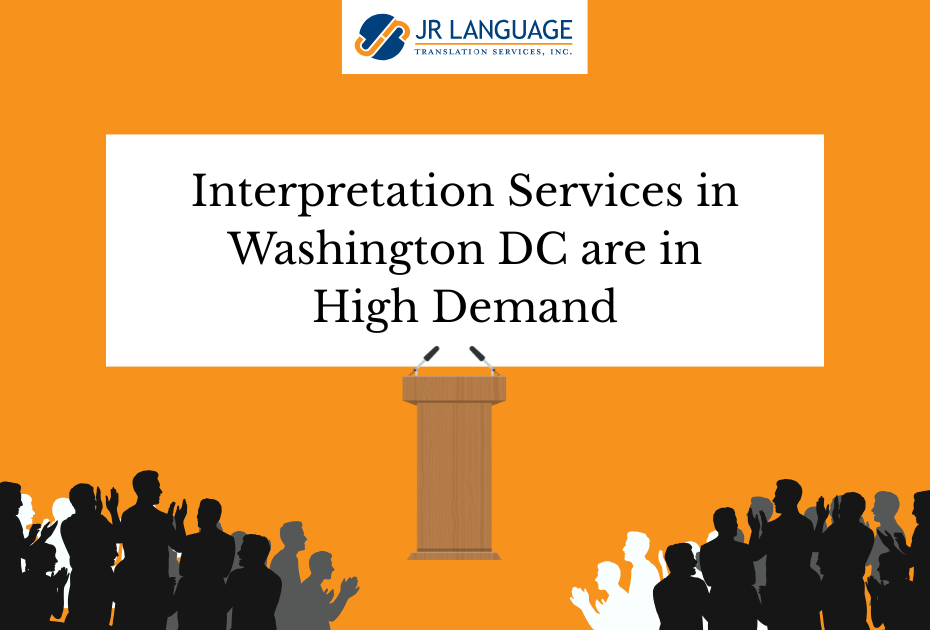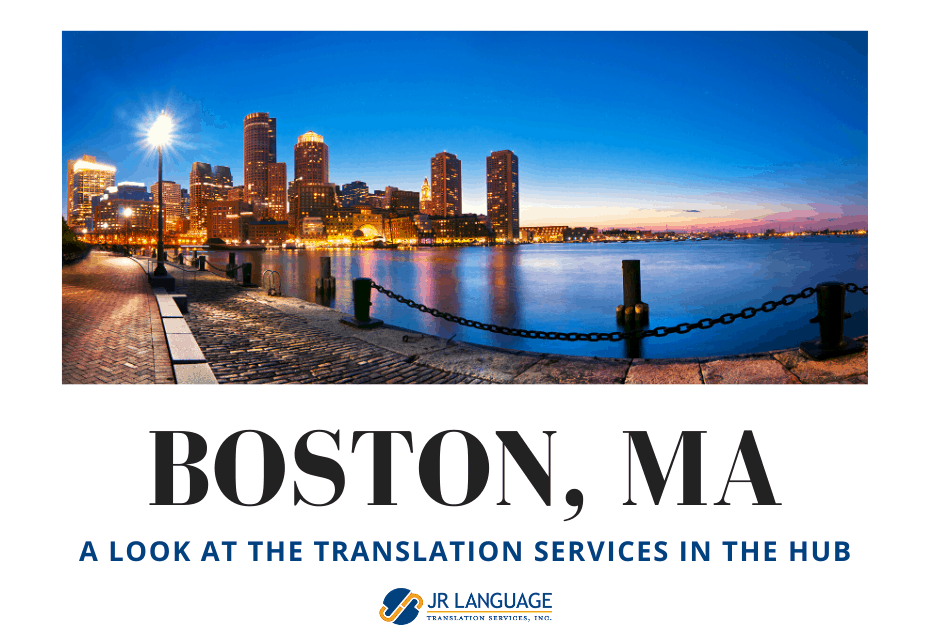
Want to read this blog as an eBook? Download the PDF or ePub!
Large events bring people together from across the country and the world. Accommodating diverse language skills is essential for business summits, trade shows, academic forums, and conferences. In some countries, providing services in the nation’s official languages is even a legal requirement, especially for government and business events.
The success of a conference depends on more than just a great program. It depends on whether every participant can fully engage. When attendees speak different languages, professional conference interpreting ensures that ideas flow freely and speakers are understood. This way, no one gets left out. Whether your event is in-person, remote, or hybrid, high-quality interpretation transforms a gathering into a truly inclusive experience.
Make Your Conference Ready for a Multilingual Audience
Accurate conference interpretation can make or break an event. Our professional interpreters at JR Language help you overcome language barriers at events, whether big business meetings or small gatherings. We ensure all participants can understand and engage. This guide covers everything you need to know about conference interpreting, whether you’re planning, attending, or interpreting. We offer professional interpretation and translation services tailored to your needs.
What Is Conference Interpretation?
Conference interpretation is real-time oral translation that ensures the speaker’s message is conveyed during events. This interpretation service allows participants to listen and understand as interpreters translate spoken words from one language to another. We do it without disrupting the flow of communication. Our conference interpretation is available in over 100 languages, including American Sign Language (ASL). The main types of interpreting used in conferences are simultaneous interpretation and consecutive interpretation.
Simultaneous Interpretation
Interpreters translate as presenters speak. This requires a simultaneous interpreter and specialized equipment for both listeners and interpreters. Interpreter booths often provide a dedicated, sound-isolated space. This allows for interpreters to ensure clear and effective language interpretation during events. Remote simultaneous interpretation offers flexible solutions for virtual conferences.
Whisper interpreting is another type of simultaneous interpretation. Here, the interpreter sits beside the listener and translates in a low voice. This method is used for intimate settings and is ideal for on-site interpretation events for small groups.
Consecutive Interpretation
Used in smaller events, the speaker pauses after each point in their speech for consecutive interpreting so the interpreter can translate. This method does not require specialized equipment and allows for a more natural back-and-forth. This makes it well-suited for interviews, Q&A sessions, and breakout discussions. It is highly effective for ensuring accuracy and engagement in small conferences.
On-Site, Remote, and Hybrid Conference Interpreting
Conference interpreting can be done on-site during in-person events or for remote interpretation options such as VRI services. Hybrid interpreting combines both approaches, such as an on-site conference alongside Zoom interpretation online options. This offers flexibility for large events with in-person attendees and virtual participants.
Why Is Conference Interpretation So Important?
Language access creates a welcoming and inclusive environment for everyone. Conference interpreting services ensure that participants who are hard of hearing or speak languages other than English can fully engage. These services are often essential in high-stakes settings such as medical, business, government, or legal events, where accuracy is critical.
Our expert interpreters combine subject matter expertise with cultural competency. We help you avoid misunderstandings and build trust with diverse audiences. Accurate interpretation means accessibility, professionalism, and meaningful participation for all.
Key Roles in Conference Interpretation Services
- Organizers and event planners coordinate services, logistics, and preparation materials for interpreters. Our project managers support them in executing smooth events. They ensure interpretation services are seamless.
- Speakers facilitate interpretation by knowing the type of interpretation used and allowing interpreters enough time.
- Interpreters do the real-time translation. They require training, certification and preparation to manage the high demands of the job. Interpreters work in real-time high-pressure environments. They must adapt their techniques to the specific needs of each event.
Best Practices for Conference Interpreting Success for Key Stakeholders
Best Practices for Event Organizers
Collaboration between planners and the interpretation company is key to providing good services. Leveraging resources such as qualified interpreters, language experts, and technology ensures your event runs smoothly and communication is accurate.
- Be flexible. Simultaneous interpretation is for large formats; consecutive is for smaller sessions.
- Book early. Niche languages and technical topics require time to secure qualified interpreters.
- Share event details. Provide scripts, slides, bios, agenda, and key terminology.
- Plan setup. Choose the right venue for your event and test audio systems, booths, headsets, or hybrid platforms before the event.
- Schedule breaks. Interpretation is mentally demanding; rotations help maintain quality.
Best Practices for Conference Interpreters
Preparation and professionalism are crucial. Interpreters should be highly trained and have in-depth knowledge of the subject matter. Interpreters should:
- Review materials and research key terms in advance.
- Work in pairs for simultaneous interpretation, switching every 20-30 minutes.
- Work into their mother tongue for maximum accuracy and fluency.
- Stay neutral, don’t editorialize, and be familiar with event technology.
- Adapt to different speaking styles, accents, and unexpected changes.
Best Practices for Speakers and Attendees
- Speakers can help by speaking clearly, not too fast, or using wordplay, pausing between points, and always using the microphone. Share presentation materials in advance and reduce background noise during virtual events.
- Attendees should test equipment, select the correct language channel to choose their own language for maximum comprehension, and allow time for interpretation during discussions.
- Technology is key. In-person events require booths, consoles, headsets, and microphones. Virtual interpretation uses platforms like Zoom or Microsoft Teams with multilingual support, while hybrid events combine both.
The Role of Translators and Technology in Multilingual Events
Note the difference between interpreters who work with spoken language and translators who handle written texts. Translations produced by translators can support interpreting by providing written materials in multiple languages and multilingual events and communication.
Remote interpretation offers flexible and cost-effective solutions for smaller meetings. Whatever the format, sound quality is the most critical factor for success. Always test equipment and have technical support available.
Common Mistakes and How to Avoid Them
Even with the best planning, certain issues can quickly derail interpretation services if overlooked. The most common challenges include:
- Bad audio
- Last-minute program changes
- No prep materials
- Short notice for services
- Equipment issues
- Interpreter fatigue
Advance planning, proper staffing, and clear communication prevent these issues. A dedicated support team ensures logistics run smoothly.
Why Choose JR Language for Conference Interpreting?
With JR Language, you get more than interpreters—you get a partner who understands event logistics, technology, and multilingual communication. We provide experienced conference interpreters and professional interpreters for all types of events. We’ve worked with conferences across industries worldwide, including business, law, healthcare, academia, government, and product launches.
Our project managers and experienced interpreters bring subject matter expertise and professional skills to high-pressure environments. We ensure the highest standards of conference interpreting are maintained. Whatever the size of your event, our experts work to run everything smoothly.
Conference Interpretation: Multilingual Communication is a Team Effort
Conference interpreting goes beyond words. It is about inclusion, trust, and connection. This guide is to prepare all the stakeholders involved. JR Language is dedicated to ensuring that your multilingual conferences create opportunities for growth and collaboration.
Are you hosting your first event? Maybe you have organized multiple conferences. Perhaps you have expertise on-site, but have recently been working on remote events. No matter the size of the event interpreting, conference interpreters work to serve their clients with utmost accuracy. Our expert interpreters are here to help! Contact us for more information and a quote. Book our interpreting or translation services today!



